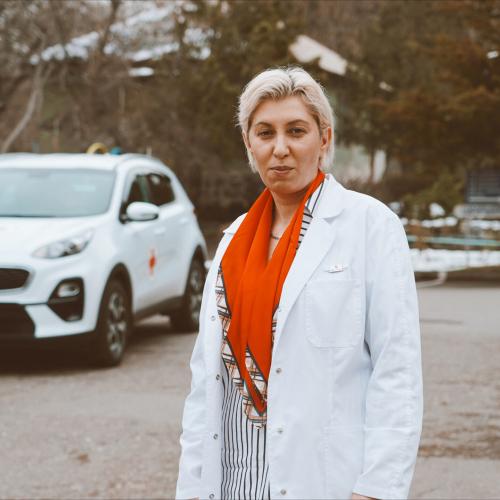

In a large number of individual stories submitted during the IPP and WHOCARES projects, helpers — ranging from healthcare workers to volunteers and mental-health professionals across Armenia, Georgia and Ukraine — shared a powerful, unified narrative of challenges, resilience, and adaptation.
Constant Uncertainty & Risk
Many helpers described repeatedly facing physical danger and logistical barriers:
- Navigating mined roads or transport shortages to reach those in need.
- Operating amid unclear policies and shifting regulations, especially during the pandemic, which limited access to supplies and vaccines.
Fear of Transmission & Family Separation
Frontline care brought intense emotional strain:
- Helpers isolated themselves from loved ones—missing birthdays, avoiding hugs—to avoid becoming infection vectors.
- The fear of carrying the virus home led to long-term stress, insomnia, and guilt.
Emotional Exhaustion and Symptoms
Across crisis contexts, stories revealed helpers maintaining composure outwardly while being overwhelmed inside:
- Hearing continuous explosions, treating war casualties, or working through mass COVID-19 waves left lasting psychological marks.
- Many struggled with insomnia, recurring nightmares, and persistent anxiety long after the crisis subsided.
Moral Distress & Professional Tension
Many helpers felt pressure from public perception and organizational demands:
- They were expected to be infallible, yet they were human—experiencing grief, frustration, and hopelessness.
- Psychological professionals emphasized how being “seen as superheroes” overlooked their own emotional vulnerability.
Growth, Teamwork & Learning
Despite challenges, many stories speak of professional and personal growth:
- Helpers report to have become more resilient and flexible through shared experience.
- They found critical support in peer support, supervision sessions, and mutual trust.
Collectively, the voices from the filed collected throught both projects show the complexity of being a helper: it’s not just service—it’s sacrifice, adaptability, and enduring strength. The voices highlight:
- The continuity of shared struggles across contexts—pandemic, conflict, displacement.
- The need for holistic support systems that address psychological safety, peer support, supervision, and organisational support
- The value of learning from lived experience—to inform better training, MHPSS tools, and policies for future crises.
All voices from the field are collected in the WHO CARES online media library.
Source(s)
About the author

Increasing Knowledge and Partnerships on Mental Health and Psychosocial Support for Helpers in Pandemics and Conflicts